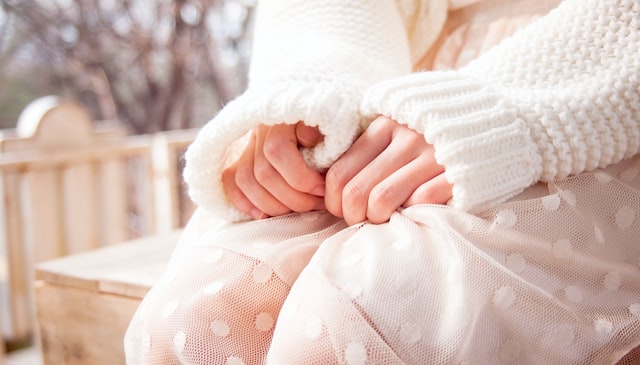10 Surprising Symptoms of Anxiety
Do you feel like something is off, but you can’t quite put your finger on what it is? Maybe you’re experiencing a range of symptoms that seem unrelated, but they’re persistently impacting your daily life. While anxiety is often associated with feelings of worry, fear, and panic, it can also manifest in many unexpected ways. From physical symptoms like chest pain and headaches to gastrointestinal issues and skin conditions, anxiety can take a toll on your body and mind in surprising ways.
In this post, we’ll explore 10 surprising symptoms of anxiety that you need to know about, including the role of fear, worry, and anticipation, and how to manage and treat anxiety symptoms. Let’s dive in!

Physical symptoms of anxiety
Anxiety can manifest in a variety of physical symptoms, including but not limited to, sweating, trembling, palpitations, chest pain, shortness of breath, headaches, and muscle tension. These symptoms are the result of the body’s fight or flight response, which is activated when the brain perceives a threat or danger. For example, a person who is anxious about public speaking may experience an increased heart rate, trembling, and sweating before or during a presentation. The physical symptoms of anxiety can be alarming, but they are the body’s natural response to stress and can be managed through various relaxation techniques, exercise, and other lifestyle changes.
Cognitive functioning
Anxiety can also affect cognitive functioning, leading to symptoms such as difficulty concentrating, forgetfulness, and indecisiveness. These symptoms can impact work, school, and other aspects of daily life. For instance, a person who is anxious about an upcoming exam may find it challenging to concentrate on studying or may experience racing thoughts about their ability to perform well on the exam. The cognitive symptoms of anxiety are thought to be the result of the brain’s attempt to prioritize survival over other tasks.
Sleep disturbances
Anxiety can cause a range of sleep disturbances, including insomnia, nightmares, and restless sleep. The relationship between anxiety and sleep is bidirectional, as sleep disturbances can also exacerbate anxiety symptoms. Effective treatment for anxiety-related sleep disturbances may include relaxation techniques, therapy, and medication.
Gastrointestinal symptoms
Anxiety can also manifest in a range of gastrointestinal symptoms, including nausea, diarrhea, and other digestive issues. The connection between anxiety and the gut is complex, as the gut is home to a complex network of neurons known as the enteric nervous system, which communicates with the central nervous system. Effective treatment for anxiety-related gastrointestinal symptoms may involve dietary changes, stress management, and medication.
Skin conditions
Anxiety can also cause or exacerbate skin conditions, including rashes, hives, and other skin problems. The relationship between anxiety and the skin is complex, as stress and anxiety can impact the immune system, leading to inflammation and other skin issues. Effective treatment for anxiety-related skin conditions may involve stress management techniques and medication.
Cardiovascular symptoms
Anxiety can impact cardiovascular health, leading to symptoms such as palpitations, chest pain, and heart palpitations. These symptoms are the result of the body’s fight or flight response, which increases heart rate and blood pressure. Effective treatment for anxiety-related cardiovascular symptoms may include medication and lifestyle changes.
Sexual dysfunction
Anxiety can also impact sexual functioning, leading to symptoms such as low libido and sexual performance issues. Anxiety can impact sexual functioning in several ways, including by increasing stress and tension, and by interfering with the brain’s ability to process sexual stimuli. Effective treatment for anxiety-related sexual dysfunction may involve therapy and medication.
Musculoskeletal symptoms
Anxiety can also lead to a range of musculoskeletal symptoms, including tension headaches, muscle pain, and other issues. These symptoms are the result of increased muscle tension and stress. Effective treatment for anxiety-related musculoskeletal symptoms may include exercise, relaxation techniques, and medication.
Psychological impact
Anxiety can have a significant psychological impact, leading to symptoms such as fear, worry, and anticipation. These psychological symptoms can be the most challenging to manage, as they can often fuel and exacerbate physical symptoms. Effective treatment for anxiety-related psychological symptoms may involve therapy, mindfulness techniques, and medication.
Anxiety management and treatment
Effective management and treatment for anxiety symptoms may involve various approaches, including lifestyle changes, therapy, and medication. Effective lifestyle changes may include stress management techniques, exercise, and dietary changes. Therapy may include cognitive-behavioral therapy, exposure therapy, and other types of therapy. Medication may include anti-anxiety medication, antidepressants, and other types of medication. It’s essential to seek professional help if you’re experiencing symptoms of anxiety to determine the best course of treatment
In conclusion, anxiety can manifest itself in a variety of surprising ways, impacting both our physical and mental well-being. Recognizing the symptoms of anxiety and understanding their underlying causes is crucial to seeking effective treatment and improving our overall quality of life. Whether you are experiencing mild or severe anxiety symptoms, know that there is help available. Don’t hesitate to reach out to a mental health professional, try anxiety-reducing techniques and products, or seek support from your community. Remember, managing anxiety is a journey, but with the right tools and support, you can learn to live a fulfilling and anxiety-free life.
Sources:
- American Psychiatric Association. (2013). Diagnostic and statistical manual of mental disorders (5th ed.).
- Anxiety and Depression Association of America. (2021). Symptoms.
- National Institute of Mental Health. (2020). Anxiety disorders.
- Harvard Health Publishing. (2018). The many physical symptoms of anxiety.
- Mayo Clinic. (2020). Anxiety disorders.
- Smith, K. (2019). Anxiety: Causes, symptoms, and treatments.
- National Alliance on Mental Illness. (2021). Anxiety disorders.
- Verywell Mind. (2021). Symptoms of anxiety: How to recognize the signs of this common mental health condition.
- WebMD. (2021). Symptoms of anxiety.
- Wong, Y. J., Owen, J., Gabana, N. T., Brown, J. W., McInnis, S., & Toth, P. (2018). Racial-ethnic differences in anxiety disorder symptoms and negative cognitions during the coronavirus pandemic. Cognitive Therapy and Research, 44(6), 983-995.



